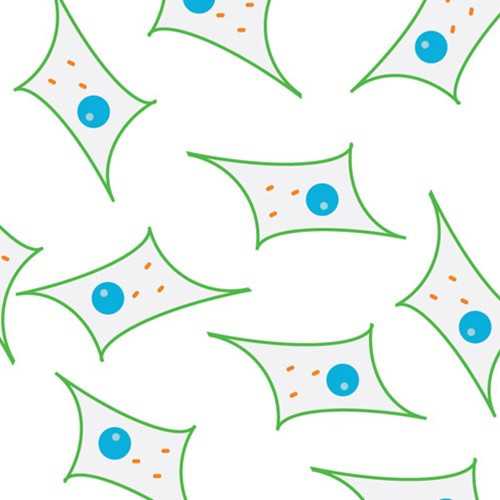Murine Squamous Cell Carcinoma Cell Line (NOOC1)
This NOOC1 (4-NQO-induced Oral Cancer 1) murine squamous cell carcinoma cell line, syngeneic to the C57BL/6 genetic background, is a hypoimmunogenic cold cancer model with high-fidelity resemblance to human tobacco carcinogen-associated squamous cell carcinomas.
Highlights:
- Useful for studying immunotherapy in cancer (in specific, cold tumors)
- Resistant to anti-PD-L1 (200 ug × 6 i.p. injections) and anti-CTLA4 (200 ug × 6 i.p. injections)
- It bears >90% similarity in its mutational signatures to human tobacco-associated squamous cell carcinomas (COSMIC Signature #4)
Cancer immunotherapy uses a patient's own immune system to prevent, fight and eliminate cancer. This type of treatment includes: adoptive cell therapy, cancer vaccines, immunomodulators, monoclonal antibodies or oncolytic viruses. However, certain tumors do not respond well to immunotherapy. One of these tumor types that will likely not trigger a strong immune response during treatment is characterized as a "cold tumor." Cold tumors are usually surrounded by cells that are able to suppress the immune response and keep the T cells (a type of immune cell) from attacking and destroying them. Most squamous cell carcinomas of the oral cavity, oropharynx, larynx, lung, skin, and esophagus are considered cold tumors.
From the laboratory of Yu Leo Lei, DDS, PhD, University of Michigan.
This NOOC1 (4-NQO-induced Oral Cancer 1) murine squamous cell carcinoma cell line, syngeneic to the C57BL/6 genetic background, is a hypoimmunogenic cold cancer model with high-fidelity resemblance to human tobacco carcinogen-associated squamous cell carcinomas.
Highlights:
- Useful for studying immunotherapy in cancer (in specific, cold tumors)
- Resistant to anti-PD-L1 (200 ug × 6 i.p. injections) and anti-CTLA4 (200 ug × 6 i.p. injections)
- It bears >90% similarity in its mutational signatures to human tobacco-associated squamous cell carcinomas (COSMIC Signature #4)
Cancer immunotherapy uses a patient's own immune system to prevent, fight and eliminate cancer. This type of treatment includes: adoptive cell therapy, cancer vaccines, immunomodulators, monoclonal antibodies or oncolytic viruses. However, certain tumors do not respond well to immunotherapy. One of these tumor types that will likely not trigger a strong immune response during treatment is characterized as a "cold tumor." Cold tumors are usually surrounded by cells that are able to suppress the immune response and keep the T cells (a type of immune cell) from attacking and destroying them. Most squamous cell carcinomas of the oral cavity, oropharynx, larynx, lung, skin, and esophagus are considered cold tumors.
From the laboratory of Yu Leo Lei, DDS, PhD, University of Michigan.
| Product Type: | Cell Line |
| Name: | Murine Squamous Cell Carcinoma Cell Line (NOOC1) |
| Cell Type: | Squamous cells (squamous cell carcinoma); adherent |
| Species: | Mouse (Also see: NOOC1 Mouse Pathogen Test Results) |
| Morphology: | Squamous cell carcinoma, epithelial-like |
| Source: | Oral squamous cell carcinoma lesions |
| Biosafety Level: | BSL-2 |
| Growth Conditions: | For 1L complete culture/growth media: Mix 626 ml IMDM (base media) with 313 ml F-12 nutrient mix (Gibco cat#11765054), 50 ml FBS (Hyclone cat#SH3039603), 10 ml Pen Strep (Thermo Fisher cat#15-140-122), 1.25ml of 4mg/ml insulin (Invitrogen cat#12585014), 200 ul of 200 ug/ml hydrocortisone (Sigma-Aldrich cat#H0888-1G), and 50 ul of 100 ug/ml EGF (EMD Millipore cat#01-107). |
| Subculturing: | Change medium every 2-3 days. |
| Cryopreservation: | 70% Growth Medium, 20% FBS, 10% DMSO |
| Comments: | Inject 2.0-3.0 × 10^6 cells in 0.1ml Matrigel (Corning™ 354230). |
| Storage: | LN2 |
| Shipped: | Dry Ice |
To generate NOOC1 tumor model, 4NQO (N8141, Millipore Sigma) was dissolved in propylene glycol to produce the 4 mg/ml stock solution. A final concentration of 50 ug/ml was reached by diluting the stock solution in drinking water. C57BL/6J male mice (5 weeks of age) were fed with 4-NQO-containing drinking water for 16 weeks. Water bottles were changed weekly. After the 16-week challenge period, mice were fed with regular drinking water and monitored twice per week to assess oral lesions. Visible oral squamous cell carcinoma tissue was homogenized to produce single-cell suspensions. Then, viable EpCAM+ tumor cells were sorted by flow cytometry to generate single-cell clones. After repetitive passages, single-cell clones that were able to produce stable cell lines in vitro were screened in vivo for their tumorigenic potential. A clone (NOOC1) was confirmed to stably produce tumors when implanted in syngeneic C57BL/6J hosts. Whole exome sequencing was performed to characterize the mutational landscape. The sequencing data were deposited in the NCBI Sequence Read Archive with the BioProject ID: PRJNA701422.
- Sun X, Zhang Y, Li J, Park KS, Han K, Zhou X, Xu Y, Nam J, Xu J, Shi X, Wei L, Lei YL, Moon JJ. Amplifying STING activation by cyclic dinucleotide-manganese particles for local and systemic cancer metalloimmunotherapy. Nature Nanotechnology. 2021 Nov;16(11):1260-1270. PubMed Central PMCID: PMC8595610.
- Gong W, Donnelly CR, Heath BR, Bellile E, Donnelly LA, Taner HF, Broses L, Brenner JC, Chinn SB, Ji RR, Wen H, Nör JE, Wang J, Wolf GT, Xie Y, Lei YL. Cancer-specific type-I interferon receptor signaling promotes cancer stemness and effector CD8+ T-cell exhaustion. Oncoimmunology. 2021;10(1):1997385. PubMed Central PMCID: PMC8632299.
If you publish research with this product, please let us know so we can cite your paper.


